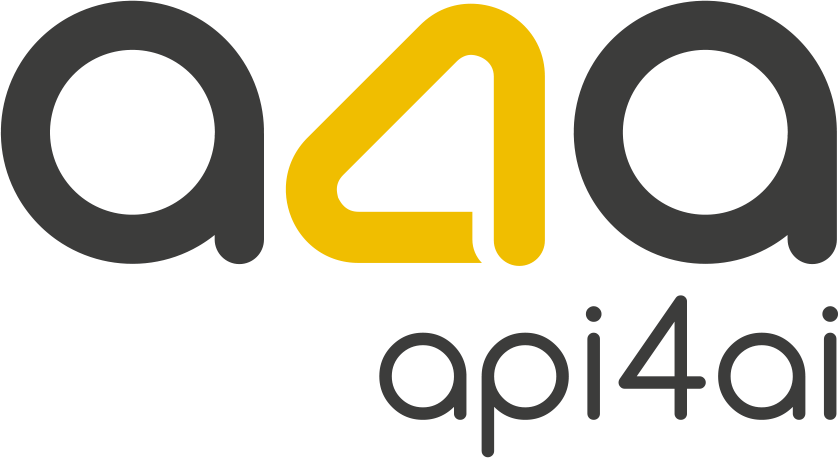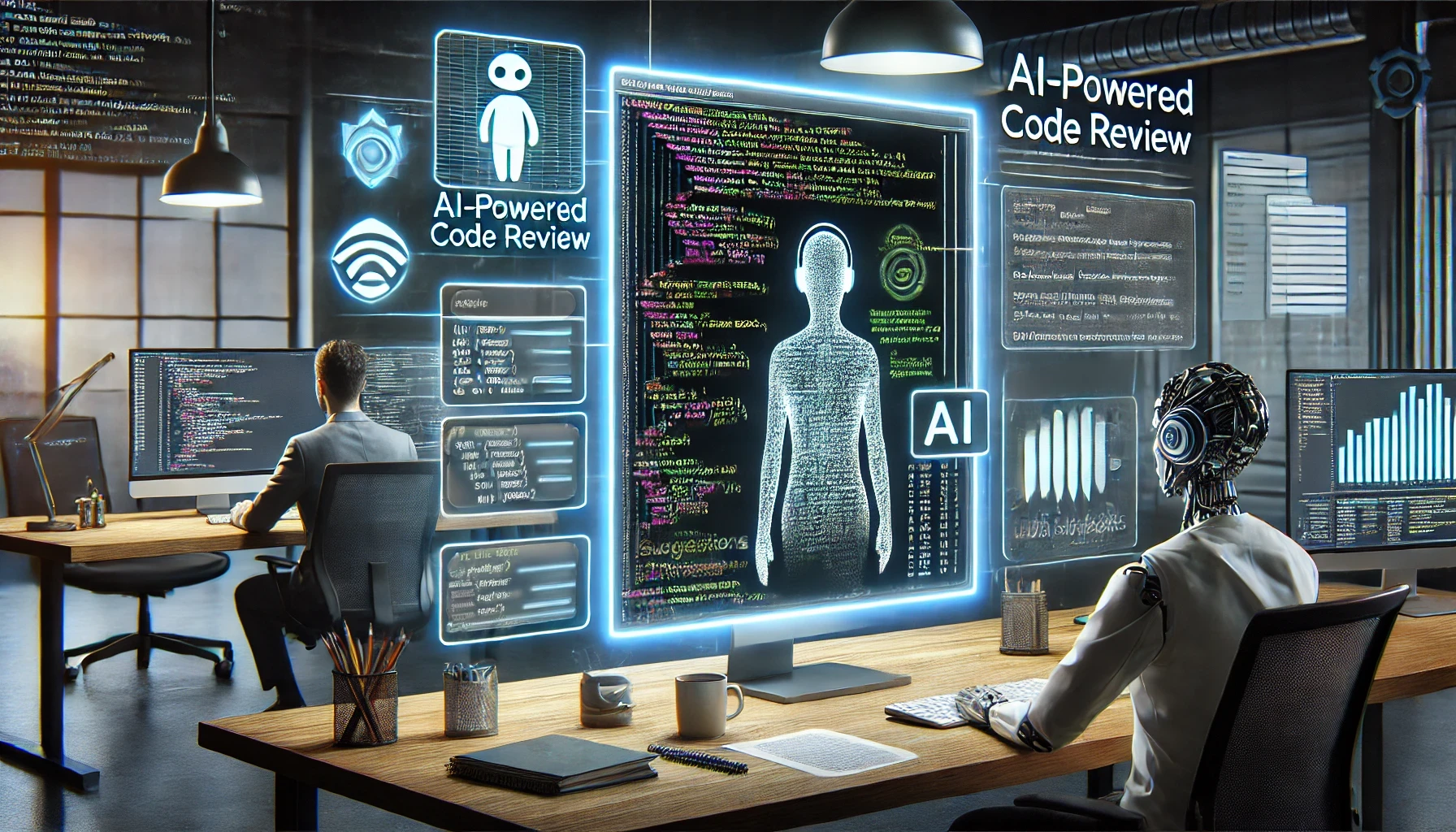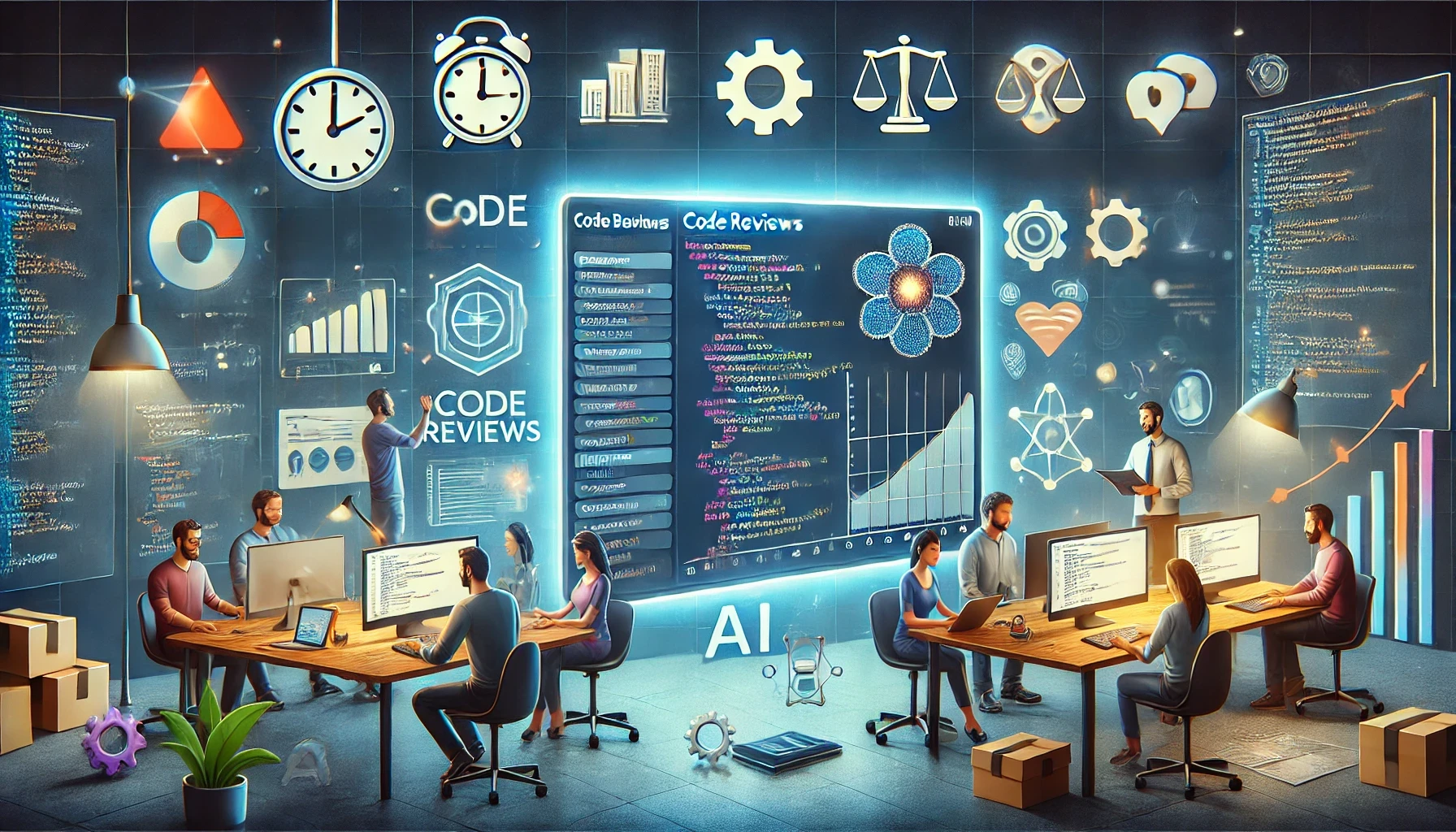Top Benefits of Using AI for Code Reviews
Introduction: The Growing Role of AI in Software Development
Setting the Context
Modern software development is more demanding than ever. With rapid advancements in technology, developers face increasing pressure to produce complex, high-performing applications while maintaining rigorous quality standards. The rise of microservices, multi-language projects and ever-evolving tech stacks only adds to this complexity.
Compounding these challenges is the accelerated pace of development cycles. Agile methodologies and continuous delivery pipelines demand frequent code changes and swift feature releases. In this high-velocity environment, ensuring code quality can feel like balancing on a tightrope — every missed bug, security flaw, or poorly implemented feature risks disrupting schedules, increasing technical debt and impacting user experience.
AI’s Transformative Role in Code Review
Artificial intelligence (AI) is emerging as a critical enabler in addressing these challenges, particularly in the area of code review. Traditionally, code reviews rely on human expertise, which, while invaluable, is prone to limitations like fatigue, oversight and inconsistencies. AI-powered tools, however, are reshaping the process. Leveraging advanced machine learning models, these tools can:
Analyze code changes with precision and identify potential issues, from syntax errors to deeper vulnerabilities.
Provide actionable feedback in real-time, seamlessly integrating into developers’ workflows.
Ensure consistent adherence to coding standards across teams and projects, regardless of team size or geographic distribution.
By automating the repetitive, time-consuming aspects of code reviews, AI doesn’t replace human reviewers but enhances their efficiency and effectiveness. Developers can focus on creative problem-solving and strategic decisions, while AI handles the tedious groundwork.
For developers, team leads and CTOs navigating the challenges of fast-paced software development, the potential of AI to streamline workflows and improve code quality is transformative. Imagine reducing review times by 50%, accelerating feature releases and minimizing technical debt — all without compromising quality.
As you explore the benefits of using AI in code reviews, consider how these advancements could optimize your development process and set your team up for long-term success. The future of software development is here and AI is at its forefront.
What is AI-Powered Code Review?
Definition and Overview
AI-powered code review is a cutting-edge approach to improving the software development process by leveraging advanced machine learning models. Unlike traditional code reviews, which rely solely on human reviewers, AI-powered solutions automate and enhance key aspects of the review process. These tools analyze code changes with high precision, identify potential bugs, security vulnerabilities, or coding standard violations and provide actionable feedback — all in a fraction of the time it takes for manual reviews.
By combining automation with intelligent analysis, AI-powered code review tools bring consistency and reliability to code quality assessments. They not only reduce the risk of human error but also enable development teams to focus on strategic tasks, such as architectural decisions and innovative problem-solving.
How It Works
The typical workflow of AI-powered code reviews integrates seamlessly into existing development pipelines, making it accessible and non-disruptive for teams. Here’s how it generally works:
Triggering the Review Process:
When a developer opens or updates a Merge Request (MR) or Pull Request (PR) in a version control system like GitLab or GitHub, a webhook triggers the AI-powered review tool.Analyzing Code Changes:
The AI tool examines each modified file in the MR/PR. Using advanced language models, it analyzes the code for potential issues such as:Bugs and errors.
Security vulnerabilities.
Violations of coding standards and best practices.
Inefficient or non-performant implementations.
Providing Targeted Feedback:
The tool generates detailed comments for each identified issue, explaining the problem and offering actionable suggestions for improvement. This feedback is often context-aware, taking into account the surrounding code and project-specific guidelines.Seamless Integration with Development Environments:
The results of the AI analysis are displayed directly in the version control system’s interface, alongside comments from human reviewers. This integration ensures a seamless workflow where developers can review and act on AI-generated insights without switching tools.
By automating repetitive and error-prone tasks, AI-powered code reviews accelerate development cycles, enhance collaboration and contribute to overall code quality. Whether working in a small team or a large enterprise, these tools adapt to diverse environments and support multiple programming languages, making them invaluable for modern software projects.
Key Benefits of Using AI for Code Reviews
1. Increased Efficiency and Faster Development Cycles
AI-powered code review tools are designed to automate repetitive and time-consuming tasks, such as scanning for common bugs, enforcing coding standards and identifying security vulnerabilities. By delegating these routine tasks to AI, developers can focus their energy on high-priority work like feature development and architectural improvements.
This automation not only reduces the manual effort required for code reviews but also significantly speeds up development cycles. With AI delivering feedback in minutes, delays caused by bottlenecks in manual reviews are minimized, enabling faster feature releases and more responsive iteration cycles. Teams can stay on schedule and bring products to market more quickly, all while maintaining high code quality.
2. Enhanced Code Quality and Consistency
One of the greatest strengths of AI in code review is its ability to catch issues that might be overlooked by human reviewers. From subtle bugs and security vulnerabilities to violations of coding standards, AI-powered tools excel at identifying potential problems with a level of precision that complements human expertise.
Additionally, these tools enforce consistent coding standards across teams and projects. By providing objective, repeatable feedback, AI eliminates variability in the review process, ensuring that code quality remains high regardless of team size or individual reviewer preferences.
3. Scalability for Large Teams and Projects
As teams and codebases grow, so does the challenge of maintaining consistent code reviews across a high volume of contributions. AI-powered tools are inherently scalable, capable of handling large numbers of merge requests (MRs) simultaneously without sacrificing accuracy or speed.
For organizations managing multiple repositories and diverse teams, AI ensures that every MR is reviewed with the same level of rigor and attention to detail. This scalability makes AI tools indispensable for enterprises and fast-growing startups alike, where maintaining code quality at scale is critical.
4. Improved Collaboration and Team Productivity
AI-powered code review tools foster better collaboration by providing clear, targeted feedback directly within the development environment. Developers can see actionable suggestions in context, reducing the back-and-forth often associated with ambiguous or incomplete comments.
By automating repetitive checks, AI frees human reviewers to focus on higher-value tasks, such as improving system design or optimizing algorithms. This division of labor not only boosts overall productivity but also creates a more satisfying and engaging workflow for team members.
5. Support for Multiple Programming Languages
Modern development teams often work on projects that span multiple programming languages. AI-powered code review tools are designed to handle this complexity, offering robust support for a wide variety of languages, including JavaScript, Python, Go, PHP, Java, C#, Kotlin and C++.
This versatility makes these tools a natural fit for polyglot projects, where different components of a system may be written in different languages. By providing consistent feedback across languages, AI tools ensure that the entire codebase meets the same high standards, regardless of the underlying technology stack.
6. Reduced Technical Debt Over Time
Technical debt is a major challenge for any software team, as unresolved issues can accumulate over time, making future development more costly and time-consuming. AI-powered tools help mitigate this risk by ensuring that code reviews are thorough and consistent from the outset.
By catching issues early and preventing them from entering the codebase, AI helps teams maintain cleaner, more maintainable code. Over the long term, this proactive approach reduces technical debt, minimizes the need for costly refactoring and keeps development efforts focused on innovation rather than firefighting.
By automating routine tasks, ensuring consistent code quality and scaling effortlessly with team growth, AI-powered code review tools are transforming the way developers work. These benefits, combined with the ability to integrate seamlessly into modern development workflows, make AI an indispensable asset for teams striving to deliver high-quality software in today’s fast-paced environment.
Under the Hood: How AI-Powered Code Review Works
AI Models and Algorithms
At the heart of AI-powered code review lies advanced technology driven by large language models (LLMs). These models, trained on vast datasets of code across multiple languages, possess a deep understanding of syntax, semantics and best practices in software development.
LLMs excel at detecting issues that might be subtle or overlooked by human reviewers, such as security vulnerabilities, inefficient implementations and adherence to complex coding standards. Their ability to analyze code contextually allows them to provide precise, actionable feedback tailored to the unique requirements of each project. Over time, AI models also learn and adapt based on user feedback, continually improving their performance and aligning more closely with the specific needs of development teams.
Seamless Integration with Developer Workflows
AI-powered code review tools are designed to integrate effortlessly with the platforms developers already use, such as Git-based systems like GitLab and GitHub. This seamless integration ensures that teams can adopt these tools without disrupting their existing workflows.
For example, when a developer submits a Merge Request (MR) or Pull Request (PR), the AI tool is automatically triggered to review the changes. Feedback is then displayed directly within the version control system’s interface, alongside any comments from human reviewers.
This frictionless experience is key to driving adoption and maximizing productivity. Developers don’t need to switch between multiple tools or platforms and feedback is provided in real-time, keeping the review process efficient and collaborative.
Example Workflow
AI-powered code review follows a straightforward process that fits naturally into modern development practices. Here’s how it typically works:
Code Submission:
A developer submits code changes via a Merge Request (MR) or Pull Request (PR) in their version control system (e.g., GitLab or GitHub).AI Analysis:
The AI tool is triggered by a webhook and begins analyzing the modified files in the MR/PR. It scans for:Bugs and potential errors.
Security vulnerabilities.
Violations of coding standards or best practices.
Areas of inefficiency or suboptimal implementation.
Flagging Issues:
The AI flags potential problems and provides detailed, actionable feedback. For example, it might suggest an alternative implementation, recommend a fix for a security vulnerability, or highlight sections of code that violate team guidelines.Feedback Integration:
The results appear directly in the version control system’s code review interface. Developers can view AI-generated comments alongside human feedback, making it easy to address issues in one place.
This streamlined process not only enhances code quality but also minimizes disruptions to the team’s workflow, enabling developers to focus on writing great code while relying on AI to handle the heavy lifting of routine reviews.
By combining cutting-edge technology with a seamless user experience, AI-powered tools are transforming the way code reviews are conducted, driving efficiency and improving collaboration across development teams.
Challenges and Limitations of AI Code Reviews
Addressing Potential Concerns
While AI-powered code reviews offer significant benefits, it’s important to recognize that these tools are not a panacea. AI, for all its advancements, is not infallible and requires human oversight to ensure optimal results.
AI tools excel at identifying issues like bugs, coding standard violations and security vulnerabilities, but they are less adept at understanding broader design and architectural considerations. Decisions about how components should interact, how data flows through a system, or how a new feature aligns with long-term project goals often require human insight. These are areas where the nuanced understanding and strategic thinking of experienced developers remain indispensable.
Moreover, AI-generated feedback can sometimes lack the context or explanation needed for developers to fully understand the suggested changes. In such cases, human reviewers play a crucial role in bridging the gap, ensuring that feedback is actionable and aligns with team priorities.
Continuous Improvement of AI Models
AI models used for code review are not static; they are designed to improve over time through continuous learning and refinement. Feedback loops are central to this process.
When developers interact with AI-powered code review tools, their actions — whether accepting, rejecting, or modifying the AI’s suggestions — provide valuable data. This feedback is used to fine-tune the AI models, helping them adapt to the specific coding practices, standards and preferences of each team. Over time, this iterative improvement enables the AI to deliver more relevant and accurate insights.
Additionally, as AI tools are exposed to more diverse codebases and real-world scenarios, they become better equipped to handle edge cases and complex code patterns. Regular updates to the underlying models ensure that these tools stay aligned with the latest programming practices and security guidelines.
By acknowledging these limitations and leveraging human oversight alongside AI’s capabilities, teams can achieve a balanced and effective code review process. Continuous improvement of AI models ensures that these tools remain valuable partners in enhancing code quality, even as the demands of software development evolve.
The Future of Code Review with AI
Emerging Trends
The field of AI code review is rapidly evolving, with several exciting advancements on the horizon that promise to further enhance its utility and impact.
One key trend is the deeper integration of AI tools into CI/CD pipelines (Continuous Integration/Continuous Delivery). By embedding AI-powered code reviews directly into the development workflow, teams can ensure that quality checks happen at every stage of the pipeline. For instance, AI could automatically review code changes, run tests and validate compliance with organizational standards before any build or deployment, enabling a seamless and fully automated quality assurance process.
Another transformative trend is the emergence of advanced contextual analysis. While current AI models are highly effective at identifying code-level issues, future iterations aim to provide deeper insights into project-level concerns. For example, AI tools could analyze how a proposed code change interacts with other components, predict potential downstream impacts and suggest improvements not only at the line level but also at the architectural level.
Additionally, as AI models become more sophisticated, we can expect more personalized feedback tailored to individual developers’ coding styles and team-specific guidelines. This will make AI tools even more intuitive and aligned with real-world workflows.
Impact on Software Development
The continued advancement of AI in code review is set to revolutionize software development in profound ways. By automating routine tasks and delivering high-quality feedback, AI will free developers to focus on innovation and creative problem-solving. This shift will enhance productivity across the board, allowing teams to iterate faster and bring products to market more efficiently.
Furthermore, AI tools will play a pivotal role in reducing errors and ensuring code quality. By catching issues early in the development process, these tools help teams minimize costly post-release fixes and maintain robust, secure codebases. The long-term result will be not only better software but also more sustainable development practices, as teams spend less time firefighting and more time building value.
AI-powered code reviews will also drive collaboration and inclusivity in development. Teams distributed across geographies and time zones can rely on AI to maintain consistent code quality, acting as an unbiased intermediary that enhances communication and decision-making.
Looking ahead, as AI continues to evolve, its role in software development will likely expand beyond code review. AI could become a co-developer, assisting in code generation, optimization and even architectural planning. This symbiotic relationship between human developers and AI has the potential to accelerate innovation, reduce barriers to entry for new developers and reshape the landscape of software engineering.
The future of code review is not just about automation; it’s about empowerment. With AI as a collaborative partner, development teams will be better equipped to tackle the challenges of tomorrow, delivering high-quality software faster and more efficiently than ever before.
Conclusion
Recap the Key Benefits
AI-powered code reviews are transforming the way software is developed by addressing critical challenges and unlocking new efficiencies. These tools bring unparalleled efficiency by automating repetitive tasks and providing actionable feedback in minutes, accelerating development cycles and enabling faster feature releases.
Their ability to enforce consistency ensures that coding standards are met across teams and projects, improving overall code quality and reducing the risk of errors or overlooked vulnerabilities. Moreover, AI tools are inherently scalable, making them indispensable for large teams and growing codebases by handling high volumes of merge requests seamlessly.
Perhaps most importantly, by catching issues early and preventing the accumulation of technical debt, AI code reviews set the foundation for long-term maintainability and sustainable development practices. The result is cleaner, more robust codebases that empower teams to focus on innovation instead of firefighting.
Encourage Adoption
The growing role of AI in code reviews is not just a trend — it’s a step toward the future of software development. For developers, team leads and CTOs, adopting AI-powered code review tools offers a clear path to optimizing workflows, improving team productivity and delivering high-quality software faster.
Whether your team is grappling with tight deadlines, increasing complexity, or the challenges of scaling, AI-powered tools can act as a catalyst for better outcomes. By integrating these technologies into your workflow, you’ll not only enhance your team’s efficiency but also position your organization at the forefront of innovation.
To stay competitive in today’s fast-paced development environment, it’s essential to remain informed about the latest advancements in AI and code review technologies. Explore the tools available on the market, experiment with their capabilities and identify the best fit for your team’s unique needs.
Stay ahead of the curve by following industry trends and updates on AI developments in code review. With the right combination of technology and strategy, you can transform code reviews from a bottleneck into a streamlined, value-driven process.
AI-powered code reviews aren’t just a solution to today’s challenges — they’re a gateway to building better software and thriving in an ever-evolving industry. Take the first step toward a smarter, more efficient future by integrating AI into your development workflow today.





